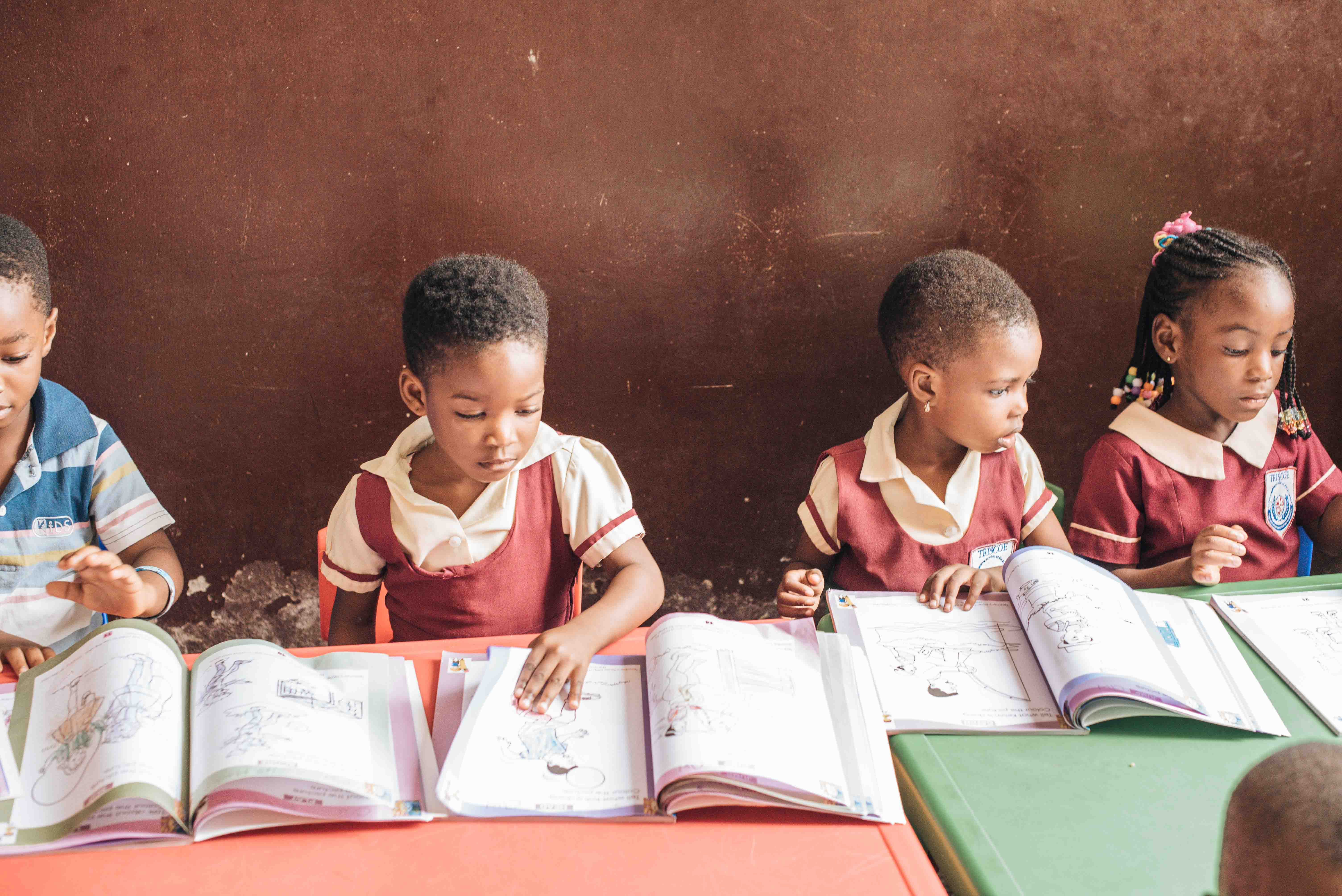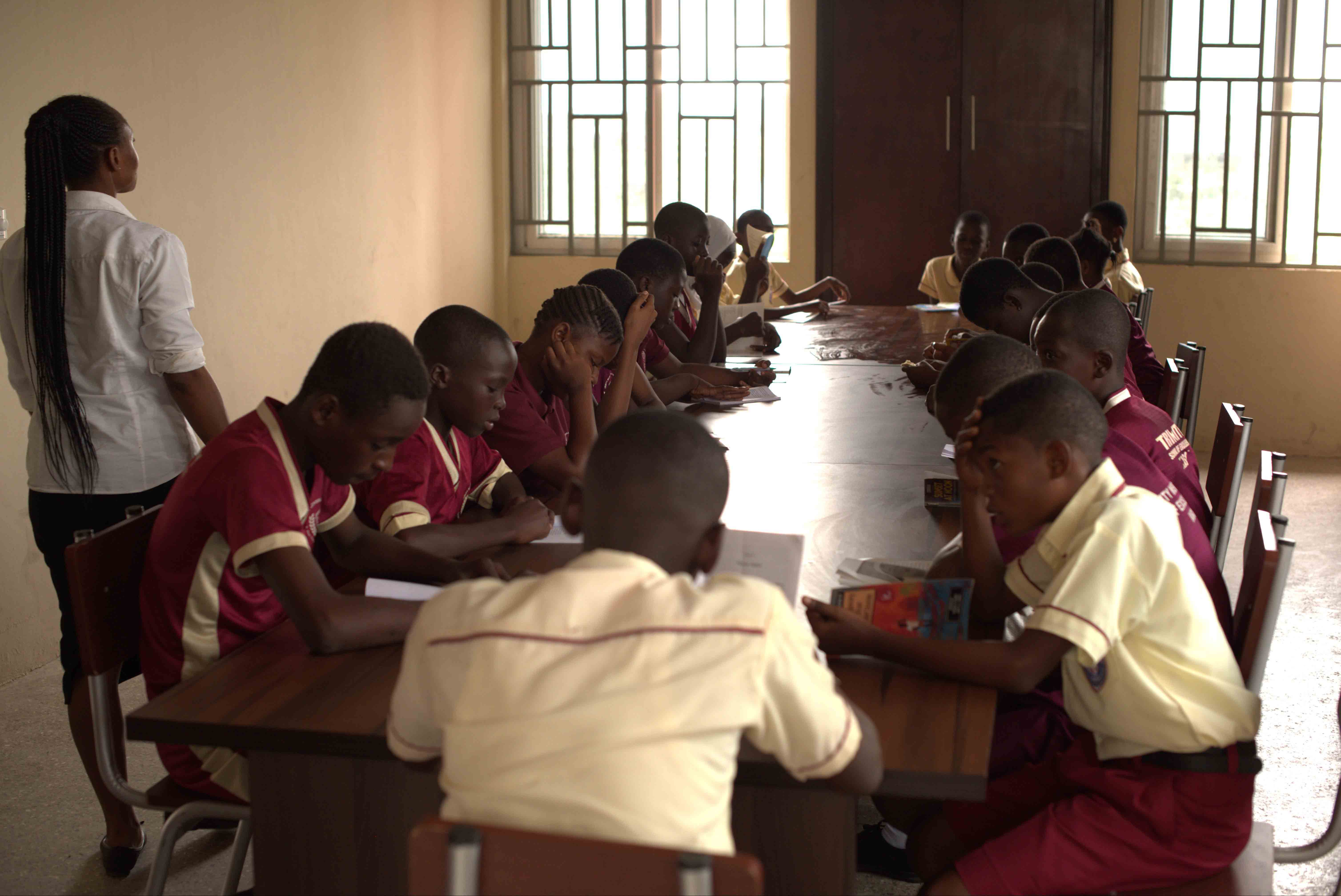Home Learning for Young Children: A Daily Schedule
Preamble
1. The nature of Ghana’s educational system is structured in such a way that a better performance is
almost solely guaranteed by the ability of the learner to be able to read and write very
well.
2. Be it as it may, those who lack the ability to read, understand and write clearly shall never
find their feet in this unfair educational system of ours. The likelihood of such individuals not
doing well financially in the future is very high. That unfortunate possibility must be tackled and
nipped in the bud before it’s too late.
3. This means that the key to formal education in Ghana is Reading and Writing. Hence the Reading
and Writing Programme is key to academic improvement of all pupils in the school.
4. Secondly, history has clearly indicated that the greatest leaders the world has ever seen, happen
to be great readers themselves. One does not need to be highly educated before he or she reads far
and wide; but one ought to read far and wide before he or she can be highly educated. Hence the
mantra of the reading and writing programme is: “A Reader Today is a Leader Tomorrow”.
5. Finally, those who read ardently, widely and habitually have a broader horizon of thinking, a
better worldview and a sharper intellect. Such individuals have better chances of making it in any
chosen field of endeavour than myopic individuals who do not read wider and hence have tunnel-vision
approach to all problems they are confronted with.
6. It is for this and many other reasons that the school seeks to lay emphasis on helping all pupils
to read and write appreciably. The first one hour of each and every working day shall be solely
dedicated to the reading and writing programme. The programme is compulsory for all teachers and all
pupils.
Important Activities
1. Practicing of Handwriting
2. Reading Time
3. Vocabulary and Spelling Time
4. Discussion and Moral Lesson Time
Modus Operandi of the Programme
1. Teachers and pupils arrive at school to settle down and eat their breakfast.
2. The school bell is rung for pupils and teachers to break into their various groups to commence
the Reading and Writing Programme for the day.
3. Story books are distributed to pupils
4. Facilitator reads from pages of the story book; stressing on the proper pronunciation of key
words and instructing pupils to repeat those words and write down the key words in their vocabulary
books.
5. Facilitator explains the text he/she has just read out to the pupils; pointing out the beautiful
way the writer has used language to craft out the story.
6. The group brainstorm to discuss the story and point out moral lessons
7. Facilitator reads the story for the last time for pupils to read after him/her
8. One-by-one, pupils are made to read out the text under review to the hearing of the whole
group.
9. Facilitator concludes the session by summarizing the portion of the story read out for the day
and giving a teaser to create a suspense for the next reading session.
Great Benefits of the Programme
1. The programme will increase the love pupils have for reading. Where love grows, perfection shall
grow with it.
2. The programme will improve upon the fluency of pupils in the English Language. The more you read
the better you become at expressing yourself using the words you read from great books by great
authors with great ideas and greater fluency in the English Language.
3. The programme will help improve upon the handwriting of pupils. The way a candidate writes would
determine whether he/she would pass the exams.
4. The programme shall produce the next generation of great writers and journalists for Mother
Ghana.
5. The programme shall broaden the horizon of our pupils and by so doing improve upon their world
view.
6. Research has shown that pupils who are good and ardent readers tend to do well in all other
subjects as well. Hence the programme will help to improve upon the general academic performance of
the school.
7. The programme shall boost the power of imagination of pupils; making their minds more
imaginative. A child with an imaginative mind can easily grasp what he/she is being taught in class
and can better contribute to class discussions.
8. The programme shall sell the school and give better signals of a serious school to parents who
would always come to meet a quiet school with banners telling them their pupils are busily
reading.
9. The programme shall help to deal with unnecessary early morning noise that unsettles and disturbs
the minds of pupils before lessons.
Visiting Readers
1. From time-to-time, parents and role models who wish to visit the school and read to our pupils
shall be allowed to come in and do so.
2. These visiting readers are people who are either writers or individuals who have made it in life
through reading. Their presence and involvement shall greatly inspire the children and make them
aspire to reach such challenging heights.



